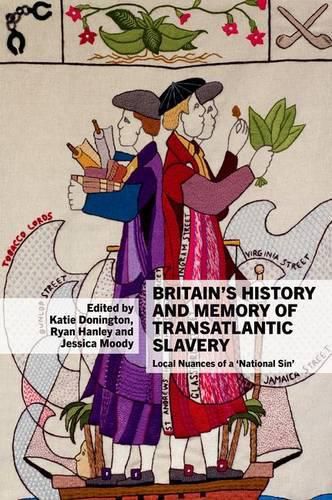Readings Newsletter
Become a Readings Member to make your shopping experience even easier.
Sign in or sign up for free!
You’re not far away from qualifying for FREE standard shipping within Australia
You’ve qualified for FREE standard shipping within Australia
The cart is loading…






Transatlantic slavery, just like the abolition movements, affected every space and community in Britain, from Cornwall to the Clyde, from dockyard alehouses to country estates. Today, its financial, architectural and societal legacies remain, scattered across the country in museums and memorials, philanthropic institutions and civic buildings, empty spaces and unmarked graves. Just as they did in the eighteenth and nineteenth centuries, British people continue to make sense of this ‘national sin’ by looking close to home, drawing on local histories and myths to negotiate their relationship to the distant horrors of the ‘Middle Passage’, and the Caribbean plantation. For the first time, this collection brings together localised case studies of Britain’s history and memory of its involvement in the transatlantic slave trade, and slavery. These essays, ranging in focus from eighteenth-century Liverpool to twenty-first-century rural Cambridgeshire, from racist ideologues to Methodist preachers, examine how transatlantic slavery impacted on, and continues to impact, people and places across Britain.
$9.00 standard shipping within Australia
FREE standard shipping within Australia for orders over $100.00
Express & International shipping calculated at checkout
Transatlantic slavery, just like the abolition movements, affected every space and community in Britain, from Cornwall to the Clyde, from dockyard alehouses to country estates. Today, its financial, architectural and societal legacies remain, scattered across the country in museums and memorials, philanthropic institutions and civic buildings, empty spaces and unmarked graves. Just as they did in the eighteenth and nineteenth centuries, British people continue to make sense of this ‘national sin’ by looking close to home, drawing on local histories and myths to negotiate their relationship to the distant horrors of the ‘Middle Passage’, and the Caribbean plantation. For the first time, this collection brings together localised case studies of Britain’s history and memory of its involvement in the transatlantic slave trade, and slavery. These essays, ranging in focus from eighteenth-century Liverpool to twenty-first-century rural Cambridgeshire, from racist ideologues to Methodist preachers, examine how transatlantic slavery impacted on, and continues to impact, people and places across Britain.